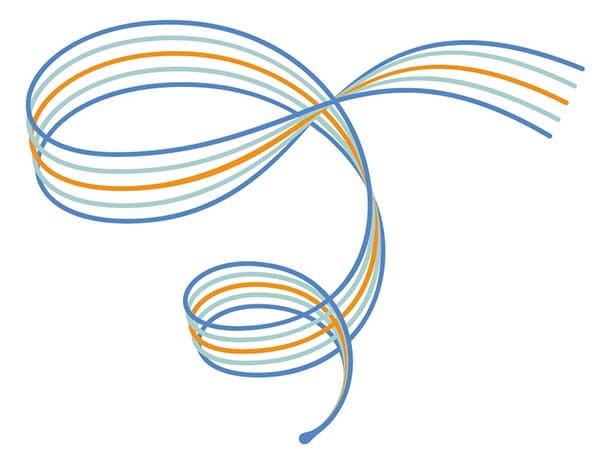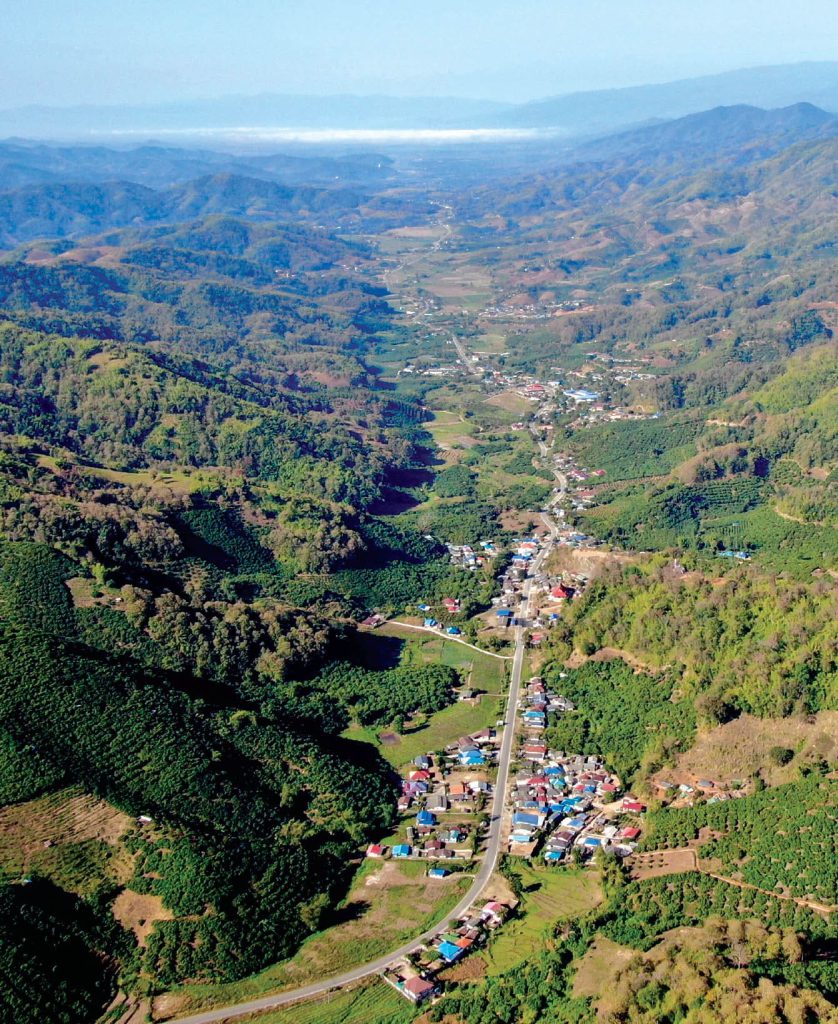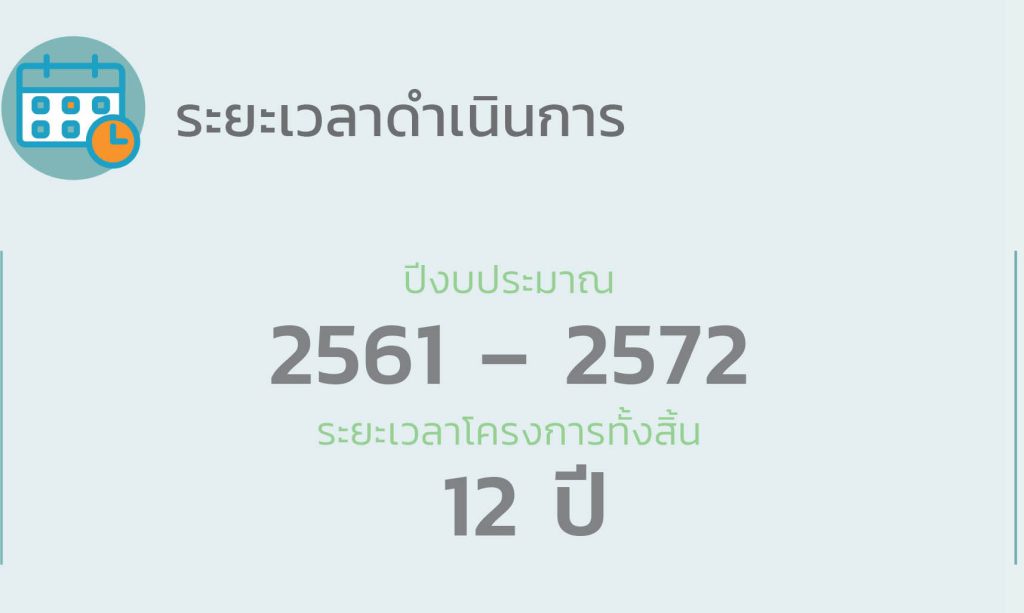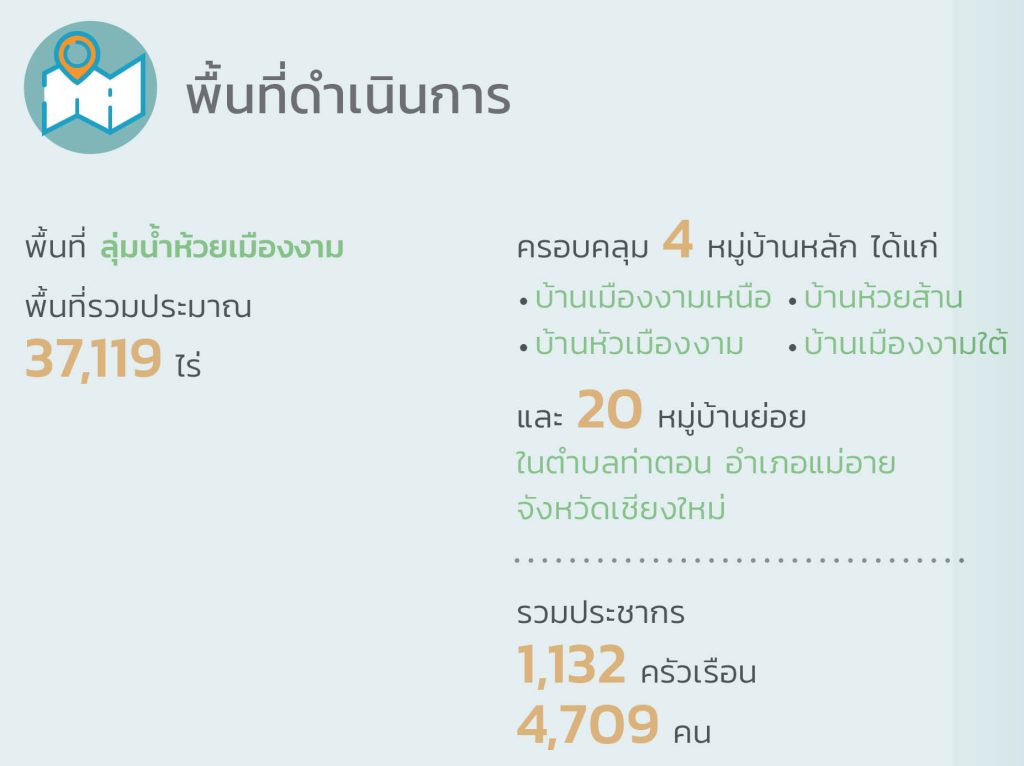Operational Guidelines

he development of the project aims to improve the quality of life
for the target population according to the principles of Royal Philosophy. It applies alternative development strategies to address drug abuse and other long-term illegal activities.
Project Objectives
The project aims to improve the quality of life and well-being of the targeted population following the Royal Philosophy by implementing Alternative Development strategies. These strategies are employed to address the persistent issues of drug abuse and other long-term illegal activities sustainably.
1. Support government measures and policies to prevent and combat drug abuse while enhancing national security by strengthening community resilience.
2. Integrate efforts across all sectors and relevant organizations to address systemic issues comprehensively, ethically, and sustainably. The benefits of the community are prioritized in these endeavors.
3. Create viable alternative livelihoods and foster self-defense mechanisms within the target communities, formerly reliant on various illegal activities, by promoting positive role models that lead to self-transformation.
4. Develop the quality of life and well-being of the people in the target area according to the principles of Royal Philosophy by emphasizing reduced expenses and generating income within households in an ethical manner, following the sufficiency economy philosophy.
5. Enhance the capacity of community members in agriculture, animal husbandry, irrigation, handicrafts, value-added processing of products, service provision, and natural resource management to drive sustainable community development independently.
6. Promote shared management and governance of natural resources and territories within the community, ensuring equal access to resources, sustainable utilization, and fostering community solidarity.
7. Act as a sustainable model for addressing drug abuse in an urban social context, utilizing long-term spatially-oriented alternative development approaches encompassing economic, social, and environmental dimensions. Emphasis is placed on community involvement, reflecting the needs of the local population and empowering stakeholders at all levels. The project assesses the benefits to the people based on indicators. It can be adapted and expanded to other areas in the future.

Project Implementation
The implementation of the Roi Chai Rak project focuses on a comprehensive development approach covering ten dimensions, including water, soil, forests, education, health, agriculture, animal husbandry, handicrafts, value-added processing, and tourism. The development timeline aligns with the 3S Model, with the initial stage aimed at achieving “Survival.” This involves developing natural resources, such as water, soil, and forests, to ensure equal access for all and create opportunities for sustainable livelihoods. Additionally, it focuses on improving basic living standards, such as health and education, and activities to reduce household expenses and enhance food security.

After establishing the foundation for community survival, the project shifts its focus to promoting various alternative livelihoods, including agricultural, animal husbandry, and handicraft development, in the “Sufficiency” stage. The goal is to generate stable income and create diversified livelihood options. This is achieved by developing the capacity and skills of farmers and community members through new knowledge, such as precision agriculture. The project also supports access to production factors and livestock breeds to improve quality and quantity, linkages to markets, and create more job opportunities within the community.
In the “Sustainability” stage, the project aims to further promote agricultural, animal husbandry, and handicraft development by focusing on value-added processing to address price fluctuations. It seeks to establish a stable market with fair prices while generating jobs and opportunities for local communities, especially for the younger generation, enabling them to sustainably support themselves and their families without resorting to drug abuse or illegal activities.
Throughout the implementation of all ten dimensions, the project adheres to the principle of balanced development between the economy, society, and the environment, taking into account the impact on the environment in every step of the work process and the Rule of Law, where everyone is subject to the same legal framework.

